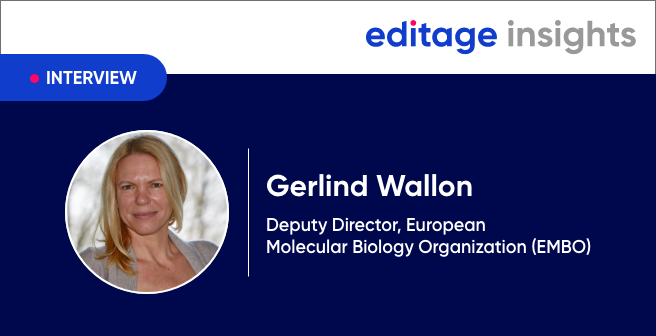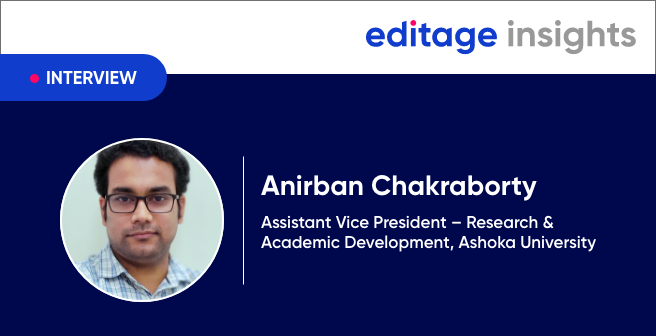If policymakers are “drivers” of change, researchers are “enablers” of effective implementation

Yusuff Utieyineshola Adeleke is one of the five Nigerian recipients of the prestigious Research Training Fellowship for Developing Country Scientists offered by the Indian government. Under this programme, he spent six months (January to June 2017) at the reputed Jawaharlal Nehru University in New Delhi, India. Back home in Nigeria, he is a Senior Research Officer at the Science Policy and Innovation Studies (SPIS) Department, the National Centre for Technology Management (NACETEM). He is involved in several activities related to academic research training and research policy and has gained considerable experience in areas that include and go beyond research – conducting research, studying scientometrics, policymaking, organizing workshops and seminars for researchers, facilitating various courses for the Centre, teaching research management and research methodology, and representing the agency at external meetings/events as needed. Yusuff has acquired a Master’s degree in Technology Management from Staffordshire University, UK.
Over the years, Yusuff has worked on building his skills as a researcher and has involved himself in activities that have given him greater exposure to various opportunities available to early- to mid-career researchers. This was also one of the reasons why he volunteered to become an Editage Insights ambassador and promote best research and publication practices globally. We are honored to have Yusuff on board and appreciate his enthusiasm and passion for our cause.
In this interesting conversation, Yusuff talks about the difference in research landscape between India and Nigeria, the role of researchers in policymaking, and how a strong infrastructure is essential for academic researchers and institutions. He also draws upon his own experiences to share useful tips on two topics that most early- and mid-career researchers worry about – presenting at academic conferences and applying for research funding.
Could you tell us more about the Research Training Fellowship for Developing Country Scientists?
The Research Training Fellowship for Developing Country Scientists (RTF-DCS) programme has been implemented by The Centre for Science and Technology of the Non-Aligned and Other Developing Countries (NAM S&T Centre) to provide opportunities to young researchers from developing countries. The researchers selected for this Fellowship are given the opportunity to undertake short-term research work at one of the academic and research institutions affiliated with the Centre in India. The RTF-DCS programme is being sponsored by the Government of India, Department of Science & Technology (DST), Ministry of Science & Technology. Under the programme, full financial support is provided to research fellows and this includes international travel, subsistence, research contingency, and domestic travel in India. The RTF-DCS programme was initiated in 2012-2013, and has so far been successfully implemented in the last four years with the chosen fellows having completed their research work at their respective host institutions in India. On account of the persistently high demand for this programme from the researchers in developing countries and the keen interest shown by the Indian research institutions in implementing this programme, the number of annual Fellowships was increased from 20 to 50 with effect from 2014-15. The programme has just concluded its fifth year.
The major objectives of the RTF-DCS programme are:
- To promote the mobility of scientists and researchers from developing countries into India and to provide them with the opportunity to work at Indian R&D/academic institutions to upgrade their research skills and expertise
- To facilitate the exchange of information and contacts between Indian scientists and researchers and other developing countries and create a network for building research collaborations
In addition, it is also expected that after returning to their home countries, RTF-DCS Fellows may also have the opportunity to find Indian co-supervisors for their research projects at the PhD/MTech levels.
I had the honor of being selected this year as one of the five researchers from Nigeria. The programme received applications from nearly 50 developing countries. As a Research Affiliate, I was attached to Dr. Madhav Govind, an Associate Professor at the Centre for Studies in Science Policy (CSSP), Jawaharlal Nehru University, New Delhi, India, who supervised my research project titled “Scientometrics as a Tool for Effective Evaluation of Science, Technology and Innovation (STI) Policy Performance in a Developing Country Context.”
Based on the time you spent in India, what are some of the similarities and differences in the research landscape in India and Nigeria?
My assessment is based on my experience during the last 6 months of stay in India. First, the major similarity is that in both countries, research focuses on meeting the technological development needs of society, promoting the socio-economic standard of living of people, and enabling sustainable development. However, the major difference is that in India, there is a more coordinated effort among stakeholders to set up a national innovation system to achieve these goals. The Indian government has instituted special Innovation and Research Centres strategically situated across the country and they are mandated to operate based on the strategic developmental priority areas of the country. To effectively carry out their mandates, these special Innovation and Research Centres are adequately funded by the government and private venture capitalists, and are equally enabled with a conducive working environment and state-of-the-art facilities. Seminars and workshops are regularly organized to ensure interaction among academia, public offices (bureaucratic), and industry to synergize efforts and agree upon a viable developmental plan that will enable India to achieve its vision of becoming a competitive economic nation.
Now, I will be honest about the research scene in Nigeria. Based on my experience of six years as a public officer, the research landscape is not strategically aligned to a specific developmental goal. This is because every four years, a new democratic government introduces its own developmental goals and direction. This approach will not work for long-term research that needs to be continually updated to respond to the emerging needs of society. Also, research funding is inadequate, and in some cases, budgeted funds for projects are not released to research and academic Institutions when they are needed most. Rather, they are assigned before the end of the budget year. This had led to general dissatisfaction among researchers and frequent protests by lecturers and researchers. But more importantly, this affects the morale or researchers and eventually the quality of work they produce. Unlike in India, the establishment of Ministries, Departments and Agencies (MDAs) in Nigeria is not need-based but politically motivated and this is responsible for the overall underperformance of these MDAs in Nigeria. This is unfortunate because Nigerian researchers have a lot of potential and in need of opportunities to develop their skills and careers.
You have some experience with grant writing training. Could you tell us more about it? Do you have any grant writing tips for young researchers?
Yes. I have attended several training sessions on grant sourcing where the topics included specific tips on applying for grants with the European Union, types of funding, the funding assessment application process, and main reasons why grant applications are rejected.
In terms of grant writing tips, young researchers must know that
- There is no one-size-fits-all template for writing a proposal. Every funding body has its own customised template which the applicant must adhere to in its totality.
- The first step of choosing the right fund to apply for is to understand the funding body’s thematic areas of interest and learn more about their funding limits, deadline, etc. For instance, most Request for Proposals (RFPs) stipulate which areas are of interest for funding. Any proposal outside these areas will be disqualified.
- Deadlines are sacred. If the funding body is located in a different time zone, it is best to be early. It is advisable that applicants submit proposals at least a day before the deadline to avoid late submission due to a difference in time zones. Never submit your proposal on the last day of the deadline as there could be technical issues with the computer, internet connectivity, etc., or you may have less time to proofread the proposal before final submission. You might end up submitting a proposal full of errors that make a bad impression on the evaluators.
- Do your homework. You should do a detailed background study of the research topic you are interested in before writing a grant proposal for it. Think of points such as the current topics of interest in that subject area, how your research will align with the funder’s expectations in terms of requisite capital (grant) and deliverables, and so on.
Conference presentation is another topic of anxiety for most researchers. Do you have any tips for this based on your own experience?
Conference presentations could make most researchers anxious, especially if they have never done this before. I always practice for a conference by attending other local or international conferences weeks before the actual event. If I am talking about my research which I am familiar with, it’s exciting to present my work in front of an academic audience. Young researchers should note that early preparation is key to avoiding unnecessary anxiety. You must expect questions concerning your presentation from more experienced researchers. You need to compose yourself, be confident, and believe that you can do it. I have made it a habit to never respond to a question saying, “I have no idea” or “No.” Doing this will indicate a lack of knowledge and/or confidence. Instead, you can attempt to answer a difficult question by explaining as much as you can. You could go on to add, “I suggest we discuss this issue further after the session so as to allow for more time to exchange opinions and knowledge.”
A paper you authored focused on Science, Technology and Innovation (STI) Indicators as an option for improving science and technology development. That appears to be an interesting topic. Could you elaborate?
This article is titled “Scientometrics and STI indicators as an option for improving S&T Development in Africa” and was published in TechnoPolicy Africa, the Kenya-based Newsletter of the African Technology Policy Studies (ATPS) Network (December 2016 Issue No. 0007 pp.5-6).
In the paper, I identified the various initiatives towards developing science and technology in Africa, including the 2005 World Summit and the UN Millennium Project 2005, all of which emphasised the need to build an STI system for enabling sustainable development in Africa. However, in my opinion, “the contributory role of STI in development cannot be determined or appreciated if such is not measurable.” Hence, scientometrics was suggested as a tool for measuring specific indicators. There are various definitions that different scholars have used to describe the word “scientometrics.” For the sake of simplicity, scientometric analysis is the quantitative study of the innovation system based mainly on bibliometric and patent indicators. Here, the number of publications in a field is considered as an indicator of research activity. Similarly, in patent analysis, the number of patents (applications and granted) awarded to an institution or a country is used as an indicator of its technological activity. In short, the article was geared towards promoting the culture of evidence-based policy planning within the research landscape in Africa. The article also provided readers with a list of databases used for indexing publications.
So what aspects of scientometrics are you interested in?
I am interested in working on publication-related indicators, especially in assessing indicators of productivity, citation impact, and scientific collaboration. Im am also interested in examining cross-country as well as inter- and intra-institutional differences in research output and impact.
You state that your objective is to engage in policy research that will translate into sustainable growth and development of the people in developing countries and the world at large. Could you elaborate?
Yes. You see, the problem facing Nigeria is not that we do not know how to formulate policies but rather that we do not know how to implement them. This position was discussed extensively in one of my international conference papers titled “Breaking the jinx: A Neo-Synthesis Approach to Successful Implementation of Nigeria’s National ICT Strategic Framework 2015-2020” which I presented at the International Conference on Innovative Research in Mechanical, Electrical, Civil, Computing and Information Technology (MECIT-2017) in New Delhi, India. Besides, in this part of the world, research activity is not geared towards solving societal problems or challenges. Instead, research is carried out to enable researchers to qualify for promotion in their research institutes or academic institutions. Once this is achieved, no further effort is invested into translating these outcomes into means of adding value to humanity and the surrounding environment where such research was carried out. In fact, my first paper published in August 2012 titled “Strategic Approach to Research and Development (R&D) Commercialization in Nigeria” published in the International Journal of Innovation Management and Technology (IJIMT) (vol 3 No 4 pp 382-386) suggested a situation-solution model that Nigeria could use to harness over 200 R&D outputs produced by various research institutes in the Federal Ministry of Science and Technology (FMST) in line with their underlying mandates so as to produce jobs for the unemployed youths, as a safety-net for the socio-economic development of Nigeria. So, my research as always been influenced by identifying those critical societal challenges and working out a reasonable model that could help solve problems.
What is the relation/connection between research and policy? What are some of the areas where researchers and policymakers can work together? And how?
The success of a policy depends on the depth of research that it is based upon. Once research is completed, it is used to formulate a policy that is proposed to policymakers. Typically, most policies are focused on convincing policymakers about how the policy will lead to a better environment or system. Therefore, there is a symbiotic relationship between research and policy. Incidentally, policies also guide the direction and magnitude of a research. Every policy document has what is called “Action or implementation plan/framework,” which is sometimes supported by a separate document called “Strategic implementation document.” In all cases, every policy must be backed by supporting research that leads up to the need to bring about change. In the policymaking process, starting from the problem identification stage down to its monitoring and evaluation, research is key. The better the evidence shared by the research, the stronger is the case for a policy proposal based on it. Therefore, to ensure the successful ideation and implementation of policies, researchers and policymakers need to work together in an effective and sustained communication system.
How can researchers be made more aware of their role in influencing policy?
Researchers should be involved at all stages of policymaking and implementation. To ensure that researchers can influence policy, the government or the responsible funding agencies should ensure a strong line of communication between research institutions (RIs), academic institutions (AIs), and policymakers involved. While the government and policymakers could be viewed as “drivers” of policies, researchers should be viewed as “enablers” responsible for its effective implementation.
Thank you for this great conversation, Yusuff!



